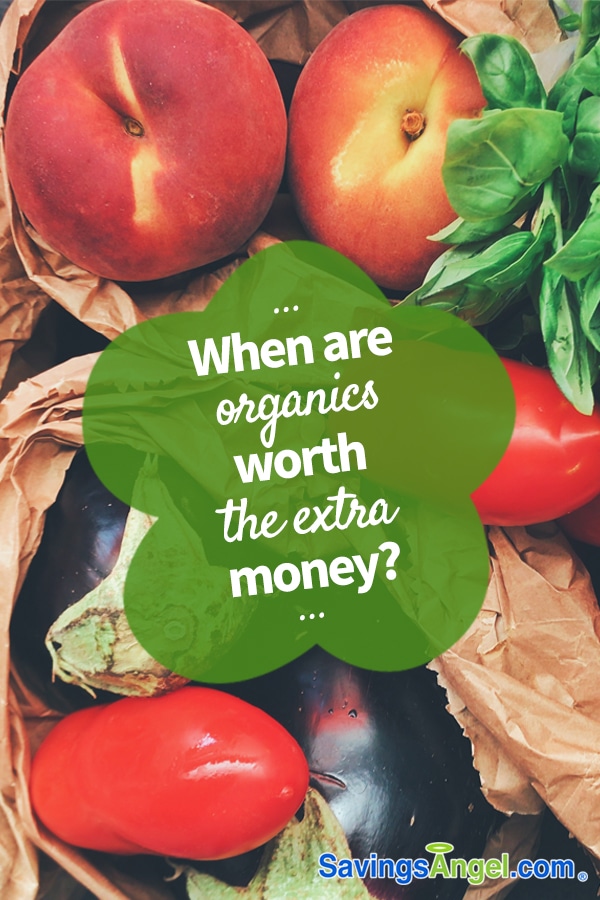 When are Organics Worth the Extra Money?
When are Organics Worth the Extra Money?
Healthy eating habits are important for the long-term health of your family, and healthy foods can even save you money on medical bills in the long-term. One aspect of healthy eating is purchasing and consuming organic products, but organic produce often puts a strain on the average family’s grocery budget.
If you’re unable to buy all organic produce, there’s an easy way to determine when you should splurge on organics and when you can safely save some money. Based on data from the U.S. Department of Agriculture, The Environmental Working Group has come up with two lists called the “Clean 15” and the “Dirty Dozen” to help consumers gauge whether or not they should spend the extra money on organic produce.
The Clean 15
The Clean 15 is a list of fruits and vegetables that are least likely to contain pesticide residue. Many times this is because they have protective rinds or skins that are removed before consumption. In some cases, it just comes down to the way the item grows. The Clean 15 is as follows:
-
Sweet corn
-
Avocados
-
Pineapples
-
Cabbage
-
Onions
-
Frozen sweet peas
-
Papayas
-
Asparagus
-
Mangoes
-
Eggplant
-
Honeydew melon
-
Kiwi fruit
-
Cantaloupe
-
Cauliflower
-
Grapefruit
These fruits and vegetables are unlikely to contain much pesticide residue, so you can save a little money by buying the non-organic versions without worrying about consuming harmful chemicals.
The Dirty Dozen
On the other hand, the Dirty Dozen is a list of fruits and vegetables that generally have high amounts of pesticide residue. Again, this mostly comes down to common growing practices, and most of these items are not peeled before eating. If you’re only going to buy some produce organic, make it the following:
-
Strawberries
-
Spinach
-
Nectarines
-
Apples
-
Peaches
-
Celery
-
Grapes
-
Pears
-
Cherries
-
Tomatoes
-
Sweet bell peppers
-
Potatoes
Spending a little more money on these 12 items can be well worth it in terms of your family’s health, even if everything else you buy is non-organic.
Additional Ways to Save Money on Organics
For all of the produce in between the Clean 15 and the Dirty Dozen, it’s up to you to decide whether spending more money on organic items is feasible for your situation. If it’s important to you to buy all organic products, but you still have a tight grocery budget, do some research to find out which stores offer better prices on organic produce.
Trader Joe’s has a wide variety of organic and non-organic produce, all for a reasonable price that can fit into most budgets. Aldi, a common discount grocery chain, also has a line of organic products that are often cheaper than their name-brand non-organic counterparts. In addition to this, many grocery stores have weekly sales and specials on organic products, so keep an eye on those grocery circulars when you’re making a grocery list.
If you keep in mind the data regarding pesticide residue on different fruits and vegetables and research the prices at different stores, it is possible to feed your family an organic diet, even on a restricted budget. That way, you can reap the health benefits while still spending responsibly.


